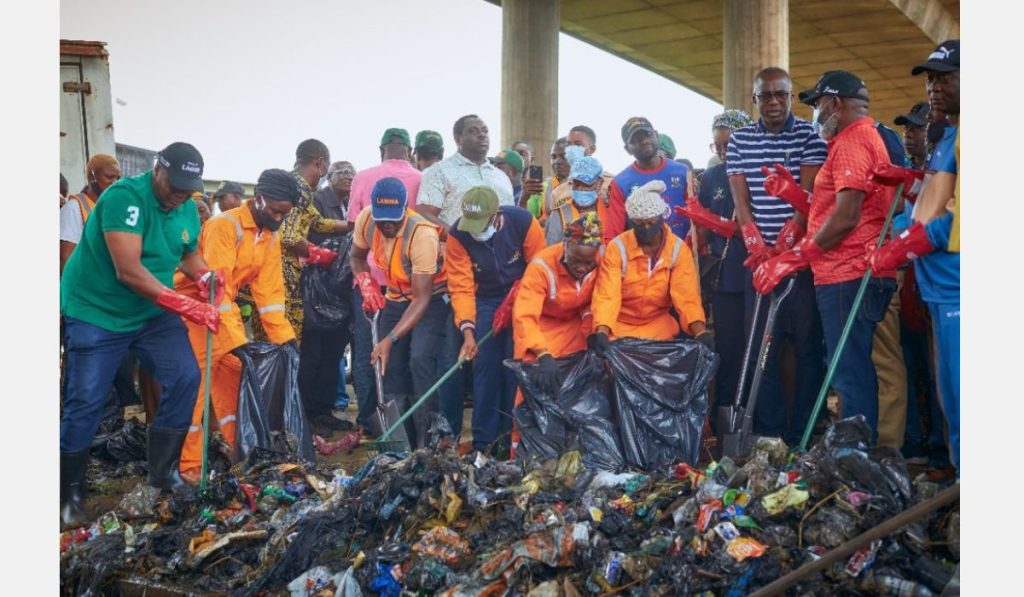
Lagos State Waterways Authority (LASWA) has partnered with the Lagos State Waste Management Authority (LAWMA) Marine Unit to tackle waste disposal challenges along the state’s waterways.
Plastic waste, like discarded bottles, has long posed a significant risk to small boats, disrupting navigation and endangering passengers. The General Manager of LASWA, Mr. Oluwadamilola Emmanuel, emphasized that this collaboration is crucial to maintaining clean and efficient waterways.
Under this initiative, LAWMA will regularly collect plastic bottles and other recyclable waste from LASWA centers, ensuring proper disposal at recycling facilities. “This effort is geared towards keeping our boats, jetties, and waterways free from waste that could compromise the system,” Emmanuel stated.
Read also: Lagos State to Enforce Single-Use Plastics Ban and Activate Flood Mitigation Infrastructure
The LASWA boss highlighted the agency’s Omi-Eko project, which aims to introduce electric ferries as part of a broader strategy to reduce fossil fuel pollution. “By shifting to electric ferries, we are actively working to minimize water pollution caused by engine emissions. This partnership with LAWMA is just one of several steps toward achieving a more sustainable water transport system,” he added.
The state government is also upgrading jetties and terminals through the Ministry of Waterfront and Infrastructure Development to enhance the efficiency of water transport. LASWA is working closely with the National Inland Waterways Authority to strengthen safety regulations and improve passenger experience.
With the introduction of 15 new ferries in 2024 and an additional 10 expected in 2025, Lagos is making significant strides toward a fully integrated transport network that seamlessly connects rail, road, and waterways. Emmanuel projected that within the next decade, water transport would play a much larger role in the state’s economy, boosting trade and daily commuting.
To encourage safe travel, LASWA continues to promote the use of life jackets, distributing them to boat operators and passengers. The agency has also deployed water guards at jetties to enforce best practices, ensuring that only high-quality life jackets are used. “Passengers can report any safety concerns through our dedicated hotlines, and we will take swift action,” Emmanuel assured.
With this proactive approach, Lagos is not only addressing environmental concerns but also positioning its waterways as a reliable and sustainable mode of transport for the future.
[give_form id="20698"]

